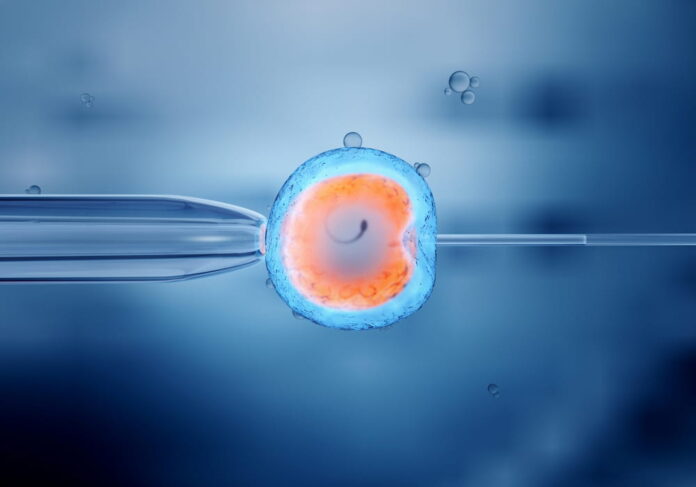Leuprolide? What is it? How does it work? Why is it used during IVF procedures? And most importantly, does it genuinely improve IVF success odds?
This article discusses it all.
This article is an ample brief about IVF, leuprolide acetate, when it is administered during IVF cycle, can it improve your odds of IVF success, and should you really consider leuprolide administration?
What is IVF?
Before we walk you through the ‘administration of Leuprolide during IVF cycle’, it is foremost to elaborate on the IVF itself.
We know IVF or in-vitro fertilization treatment as a clinical technique that facilitates pregnancy by fertilizing the female’s egg aside her body, in a laboratory. The egg is first fertilized by the male partner’s sperm and maturation for the next 5 days to attain blastocyst. Once the fertilized eggs approach blastocyst, they are checked for chromosomal and hereditary abnormalities and the one with most potential to induce a normal pregnancy is inserted back to the woman’s uterus.
Any couple with fertility conditions like blocked fallopian tubes, endometriosis, fibroids, polycystic ovary syndrome (PCOS), primary ovarian insufficiency (POI), sexually transmitted infections (STIs), abnormal sperm, low sperm count or retrograde ejaculation is considered an ideal candidate for IVF intervention.
An IVF cycle is classified in 6 stages: ovarian stimulation, egg retrieval, sperm retrieval, fertilization, egg incubation and embryo transfer. Leuprolide administration is normally carried out during ovulation induction or embryo implantation stage.
So, what is thus the purpose of administering Leuprolide during IVF?
What is Leuprolide?
Leuprolide acetate, otherwise known by its brand name Lupron, is a type of gonadotropin-releasing hormone agonist (GnRH agonist) which temporarily constrains gonadotropins and other reproductive hormones.
In simplest words, Lupron limits the stimulation of ovaries during ovulation. It actually downgrades the result of fertility drugs used to trigger ovulation. Women who are given fertility drugs containing luteinizing hormone (LH) or follicle-stimulating hormone (FSH) during an IVF cycle are at a risk of ovarian hyperstimulation syndrome (OHSS). This hyperstimulation of ovarian follicles can dangerously affect a female’s reproductive health and make egg collection complicated for endocrinologists.
Leuprolide counters premature ovulation, minimizes likelihood of ovarian hyperstimulation and controls ovulation to better time egg collection during IVF procedures.
When is Leuprolide administered during IVF treatments?
If you are demanded by your endocrinologist to undergo Leuprolide administration, you may be asked to take Leuprolide injections at least 1 week before your natural ovulatory cycle. Leuprolide dosing proceeds during the ovarian stimulation stage as well, but in lower amounts.
Though leuprolide’s general purpose is to induce a temporary menopausal state and stop ovulation, when administrated in right dose and for duration along with ovarian stimulation, it can better control ovulation. As well as, minimize the risk of premature ovulation or ovarian hyperstimulation.
Does Leuprolide improve IVF success odds?
In some specific cases, yes, it does.
Women at a greater risk of premature ovulation or ovarian hyperstimulation syndrome (OHSS) are found to have better embryo implantation under leuprolide administration.
OHSS can abnormally cause ovulation during embryo transfer and lower the odds of IVF success. If your best IVF center in Gurgaon suggests leuprolide administration after assessing your preconception test reports, it will likely improve your embryo transfer success likelihood. Also women who are supposed to undergo frozen embryo transfer (FET) are also often advised to take low leuprolide doses to pause ovulation during transfer and serve better implantation chances.
Should you also take Leuprolide during your IVF cycle?
If your fertility doctor suggests so.
If you are diagnosed with premature ovulation, OHSS or have a greater amount of FSH or LH hormones in your preconception tests, your endocrinologist may also advise you to undergo Leuprolide administration. Depending on your state, you can either be administered with Leuprolide during ovarian stimulation phase or embryo transfer stage.
Always discuss with your endocrinologist before you are supposed to undergo Lupron administration. Always find a fertility clinic like Grace Fertility that is transparent to you. If you find a valid reason for them to consider Lupron during your IVF cycle. In multiple cases, leuprolide administration has improved implantation success rates and it can work the same for you as well.
The bottom line
Leuprolide acetate is not recommended in patients trying to conceive because of its act on a female’s ovulatory system. Leuprolide otherwise known as Lupron acts to manage ovarian hyperstimulation and premature ovulation in women since it temporarily induces menopause in women. In such cases, Leuprolide can actually benefit the IVF procedure by controlling excessive ovulation and giving endocrinologists a predictable time window for egg retrieval and embryo implantation.
Find your way, start your family. You are just a step away.

